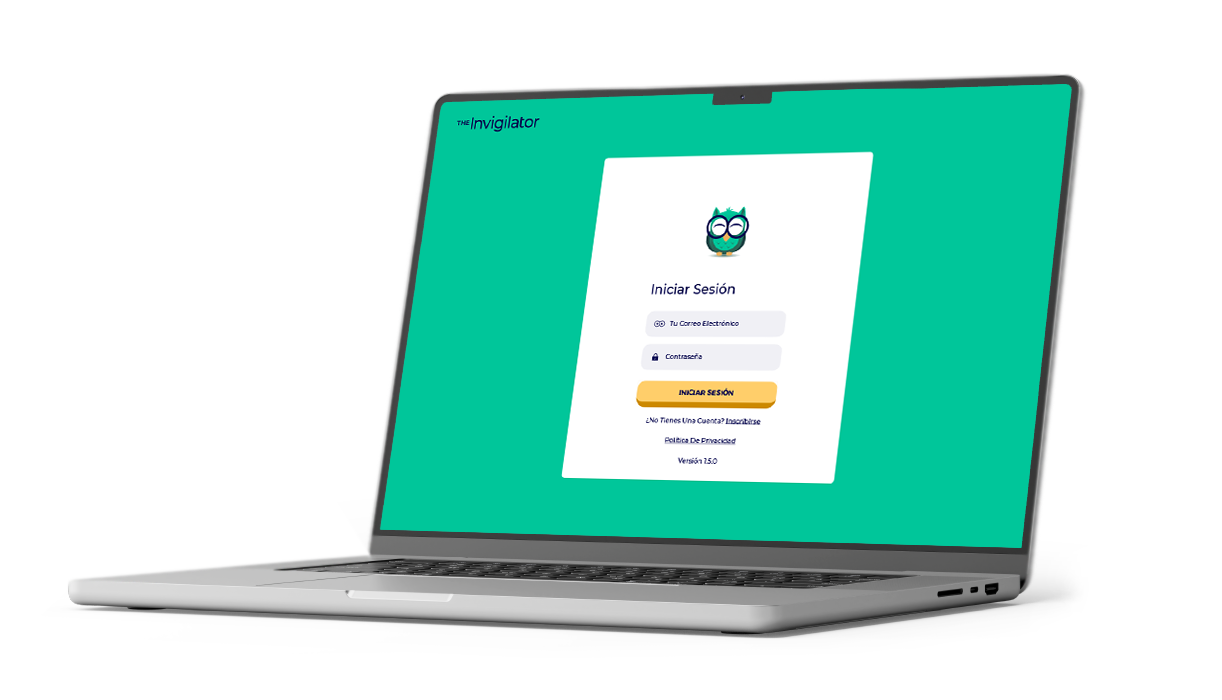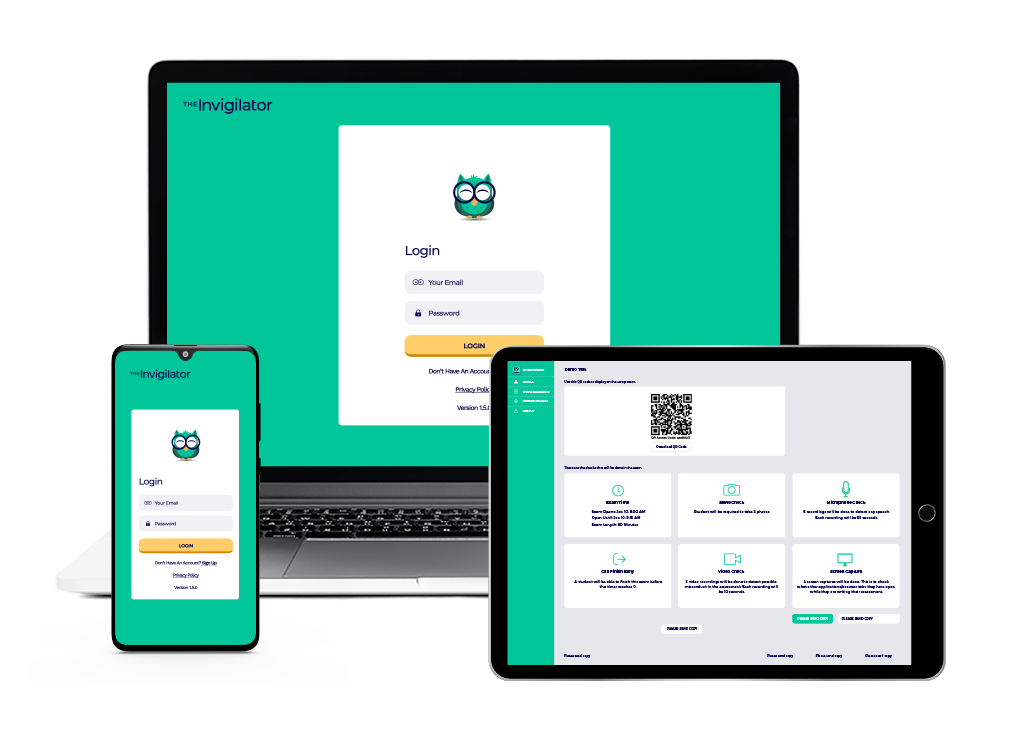Ensuring exam integrity in a digital space is no small feat, but what if cutting-edge technology could make it seamless? The Invigilator App harnesses the power of advanced AI to tackle cheating head-on, redefining the standards of secure and fair assessments. Read on to learn about the technical marvels behind its innovative features and discover how they’re revolutionising education for students and institutions alike.
Facial Recognition
One of the most critical aspects of exam integrity is verifying the identity of the test-taker. The Invigilator App employs advanced facial recognition algorithms that analyse unique facial data points to ensure that the registered individual is the one taking the assessment. The app captures a master image of the student when they are registering, which is securely stored in its database. During the assessment, random selfie prompts are issued and these images are instantly compared to the master photo using machine learning models. The algorithms identify mismatches, alerting examiners to potential identity fraud.
Facial recognition models used by The Invigilator are trained on large datasets to ensure accuracy across diverse populations, considering variations in lighting, angles and facial expressions. The system’s ability to process and verify images in milliseconds makes it a reliable tool for real-time monitoring.
GPS Tracking
GPS tracking plays a pivotal role in identifying proximity-based academic dishonesty. The Invigilator App maps the geographical location of all students taking the same exam. If two or more students are detected in close proximity during the test, the system flags these instances for further review.
The app leverages geofencing technology, setting virtual boundaries to ensure students remain in their designated testing zones. GPS data is cross-referenced with time-stamped exam logs, enabling administrators to pinpoint collusion attempts. This functionality is especially crucial for online exams conducted in non-supervised environments, providing an additional layer of oversight.
Audio Analysis
The app uses advanced speech detection algorithms to monitor ambient noise during assessments. Randomised audio recordings are taken and processed through AI models designed to identify human speech patterns. The system detects irregularities, such as conversations or whispers and flags the recordings for examiner review. The audio analysis incorporates natural language processing (NLP) techniques to differentiate between legitimate background noise and deliberate cheating attempts. By prioritising flagged recordings, educators can efficiently review potential violations without wading through irrelevant data.
Real-Time Screen Monitoring
The Invigilator App captures screenshots of the test-taker’s PC screen at random intervals. These images are processed using AI-driven optical character recognition (OCR) to detect unauthorised materials, such as open browser tabs or prohibited applications. The app’s algorithms are trained to identify anomalies, such as sudden changes in screen activity or patterns that suggest external assistance. Integrating screen captures with the exam logs, the system ensures a holistic view of the test-taker’s behaviour throughout the assessment.
Data-Driven Insights
Beyond real-time monitoring, The Invigilator App provides examiners with a dashboard summarising flagged events. These dashboards include visual and audio evidence, making it easier for educators to identify and address violations. The app’s backend uses data clustering techniques to group similar instances, helping administrators prioritise high-risk cases.
Learn more about the AI-driven tools The Invigilator uses to ensure exam integrity today!
FAQs & Answers
- How does The Invigilator App use facial recognition in online exams?
The Invigilator App captures a master image of the student and uses AI-powered facial recognition to verify identity through random selfie prompts during the exam. - How does GPS tracking help detect cheating in online exams?
The app maps students’ locations during the exam and flags proximity-based collusion attempts, using geofencing to ensure they stay in designated testing zones. - What role does audio analysis play in maintaining exam integrity?
The app records ambient noise at random intervals, using AI and natural language processing to detect suspicious conversations or whispers. - How does real-time screen monitoring prevent cheating?
The Invigilator App captures screenshots at random intervals, using optical character recognition (OCR) to detect unauthorised browser tabs or prohibited materials. - What happens if an exam violation is detected?
All flagged instances are sent to an examiner dashboard, where visual and audio evidence is presented for review to determine if further action is needed. - How does the app differentiate between background noise and cheating attempts?
The AI uses speech detection algorithms and NLP to filter out normal background noise and prioritise human speech patterns indicative of cheating. - Can students bypass the security measures of The Invigilator App?
The app uses a combination of facial recognition, screen monitoring, GPS tracking, and audio analysis, making it extremely difficult to evade detection. - How does The Invigilator App enhance fairness in remote exams?
By automating proctoring with AI, the app ensures a consistent and unbiased approach to monitoring students, improving fairness in online assessments.








